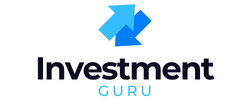Mint was officially discontinued in 2024, giving rise to multiple free and paid budgeting apps that serve all types of purposes. But finding free Mint alternatives that would work exactly as we’ve been used to can feel challenging, especially since most modern budgeting apps come with a semingly cunning way of luring you in for free, and then giving you a lot of stress at the end of the day.
Interestingly, some users prefer more privacy and control, opting to track finances without giving third-party apps direct access to their checking or savings accounts. This guide explores several excellent solutions — free, secure, and simple — that let you manage money manually without bank connections.
Table of Contents
Why Look for Mint Alternatives Without Bank Linking?
Mint, once the most popular personal finance tracker, excelled at instantly pulling transactions from your accounts. But not everyone is comfortable entering online banking credentials into a budgeting app. Alternatives without account linking provide:
- Greater privacy — no sharing of login credentials with third parties.
- Control — you decide what gets tracked and when.
- Simplified tracking — focus on budgets and manual entry over automation.
- No broken connections — avoid common issues with bank sync errors.
Top Free Mint Alternatives Without Bank Linking
Below are budgeting apps and systems you can use as free Mint alternatives. Each option allows you to manually track expenses without requiring a bank connection. Setup guides are included.
1. GNUCash
GNUCash is a free, open-source accounting tool used for personal finance and small businesses. It requires manual transaction entry, making it ideal for users who want full control.

Setup Guide for GNUCash
- Download: Get GNUCash free from gnucash.org.
- Install: Supported on Windows, Mac, and Linux.
- Create File: Start a new financial file; you’ll set up accounts manually (e.g., Checking, Savings, Credit Card).
- Enter Transactions: Record income and expenses as they occur. While more effort, you control every entry.
Cost: 100% free, no hidden upgrades. However, the interface may feel complex without accounting knowledge.
2. EveryDollar Free Version (Manual Mode)
Created by Ramsey Solutions, EveryDollar is a zero-based budgeting tool. The free version requires manual expense tracking, making it one of the closest Mint alternatives without bank linking.
Setup Guide for EveryDollar
- Sign Up: Visit EveryDollar’s website and create a free account.
- Build Your Budget: Add income categories and monthly expenses.
- Track Manually: Enter each transaction as you spend. This creates accountability.
- Stay Zero-Based: Assign every dollar to a category (savings, rent, groceries, etc.) until you hit zero.
Cost: Free. Optional upgrade ($79.99/year) allows automated bank syncing, but not necessary for manual users.
3. Goodbudget
Goodbudget uses the digital “envelope system.” Instead of linking accounts, you assign cash to categories and track expenses against them.

Setup Guide for Goodbudget
- Download App: Available on iOS, Android, and web.
- Create Envelopes: Examples include Rent, Utilities, Dining Out, Savings.
- Allocate Funds: Virtually “stuff” each category with a preset amount.
- Track Transactions: Enter purchases manually against each envelope.
Cost: Free version includes 10 regular and 10 annual envelopes; paid plans ($7/month) offer unlimited envelopes.
4. Spreadsheet Budgeting (Google Sheets or Excel)
Sometimes the simplest Mint alternative is a spreadsheet budget template. You control inputs, formulas, and categories with no need for syncing accounts.
Setup Guide for Spreadsheets
- Choose Platform: Google Sheets (free) or Microsoft Excel.
- Use a Template: Google provides free budget templates.
- Customize: Set income categories, recurring bills, and variable spending groups.
- Track Weekly: Manually update balances and check against your goals.
Cost: Free with Google; Excel may require Microsoft Office subscription.
5. CountAbout
CountAbout is a lesser-known budgeting app that works without bank linking. The free version allows manual data entry of income and expenses.
Setup:
- Sign up for a free account on CountAbout.
- Create categories and budgets for spending.
- Enter transactions manually. The app provides cloud backup and syncing across devices.
Cost: Free. Paid version ($9.99/year) adds optional automation but is not required.
Side-by-Side Comparison Table
| App | Manual Entry Required | Free Version | Optional Paid Upgrade | Best For |
|---|---|---|---|---|
| GNUCash | Yes | Yes | No | Detailed control, accounting-minded users |
| EveryDollar | Yes | Yes | $79.99/year | Zero-based budgeting beginners |
| Goodbudget | Yes | Yes (limited envelopes) | $7/month for unlimited | Envelope method enthusiasts |
| Spreadsheet | Yes | Yes | N/A | DIY, highly customizable tracking |
| CountAbout | Yes | Yes | $9.99/year | Simple app-based budgeting |
How These Manual Alternatives Compare to Mint
Mint was designed for automation. By linking your accounts, transactions were imported automatically. While convenient, this raised privacy concerns and frequent sync disruptions. Manual-entry systems remove that vulnerability but require more discipline. In return, you gain security and mindful spending awareness.
According to the Consumer Financial Protection Bureau, using budgeting tools that encourage active tracking can improve financial literacy and spending accountability.
Tips to Successfully Budget Without Bank Linking
- Schedule weekly “money check-ins” to update your app or spreadsheet.
- Save receipts until you manually enter them.
- Use cash when possible; makes envelope tracking easier.
- Set realistic budgets to prevent frustration.
- Review trends monthly to adjust allocations.
FAQs About Free Mint Alternatives Without Bank Linking
1. Why would I want a Mint alternative free no bank link?
You may prefer more security, avoid third-party access to credentials, or favor a manual budgeting style.
2. Are these manual apps truly free?
Yes. GNUCash, Google spreadsheets, and EveryDollar (manual version) are free. Some apps offer optional premium add-ons, but you can budget effectively without upgrades.
3. Which manual system is easiest for beginners?
EveryDollar free is beginner friendly thanks to its simple zero-based template and clear interface.
4. Do manual systems take more time than Mint?
Yes, but entering transactions increases budgeting awareness, which can improve money management in the long-run.
5. Can I still use reports and charts in these alternatives?
Yes. GNUCash and spreadsheets allow detailed financial reports; Goodbudget and CountAbout offer simple graphical overviews.
6. What about syncing across devices?
EveryDollar, Goodbudget, and CountAbout have apps for mobile sync; spreadsheets can sync through Google Drive.
7. Is it safe to use these apps?
Manual-entry alternatives are considered safer since you don’t share banking logins.
8. Do manual methods support debt payoff planning?
Yes. For example, EveryDollar supports debt snowball tracking within its free plan.
9. Can I export data from these apps?
GNUCash and spreadsheets offer robust exporting; Goodbudget allows CSV export in premium mode.
10. What’s the best no-bank-link budgeting tool for power users?
GNUCash. It supports double-entry bookkeeping, detailed reporting, and scalability to small business needs.
Conclusion
If you’ve been searching for a Mint alternative free no bank link, you have multiple strong choices. GNUCash and spreadsheets provide ultimate customization. EveryDollar makes budgeting accessible with a structured framework. Goodbudget provides a modern take on the cash envelope system. CountAbout offers clean, no-bank-link tracking with cloud access. Each is free to start, empowering you to take control of your finances without sharing sensitive login details.
Pick one solution today, set up your budget in less than an hour, and take the first step toward financial clarity — without sacrificing privacy or security.


